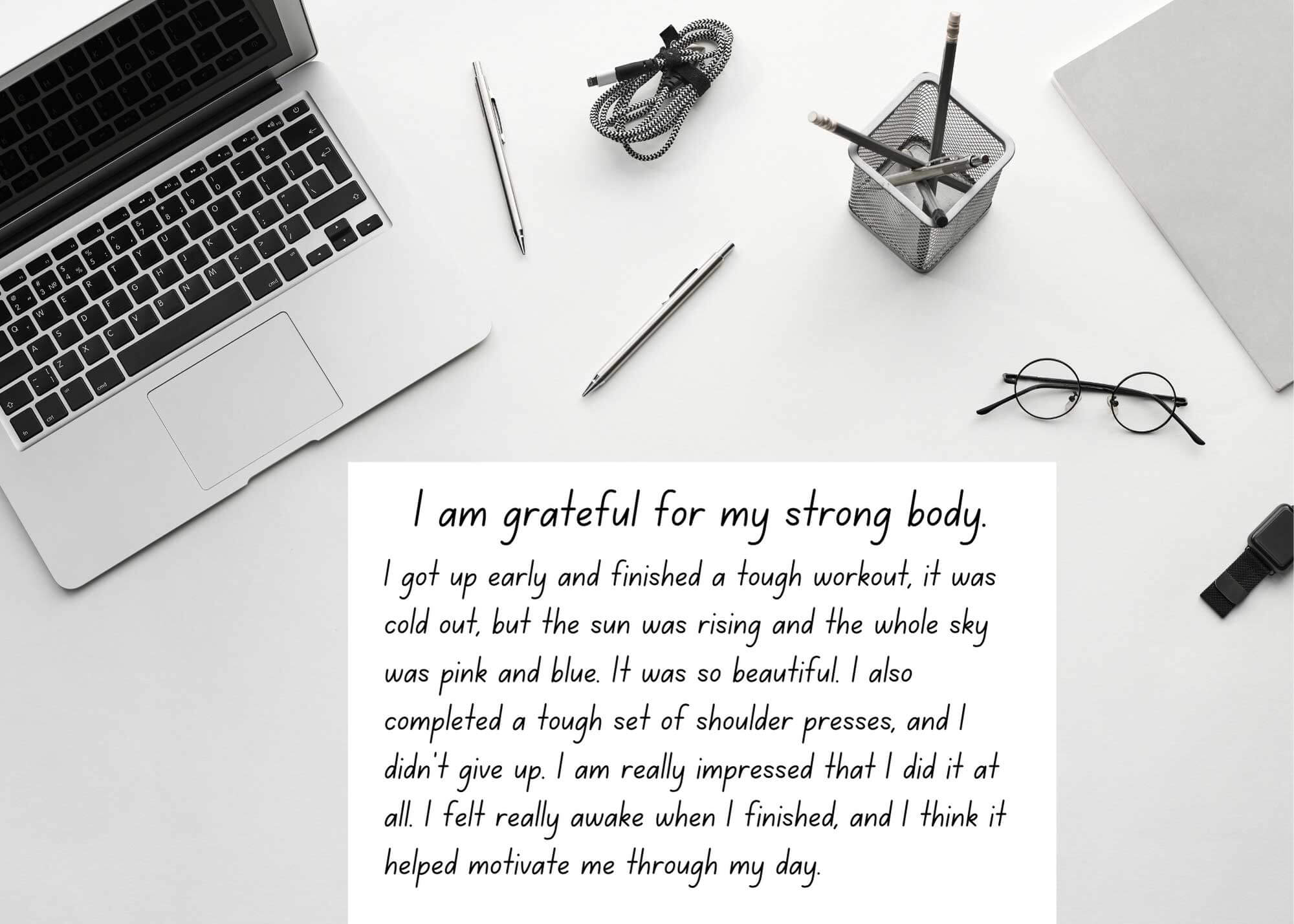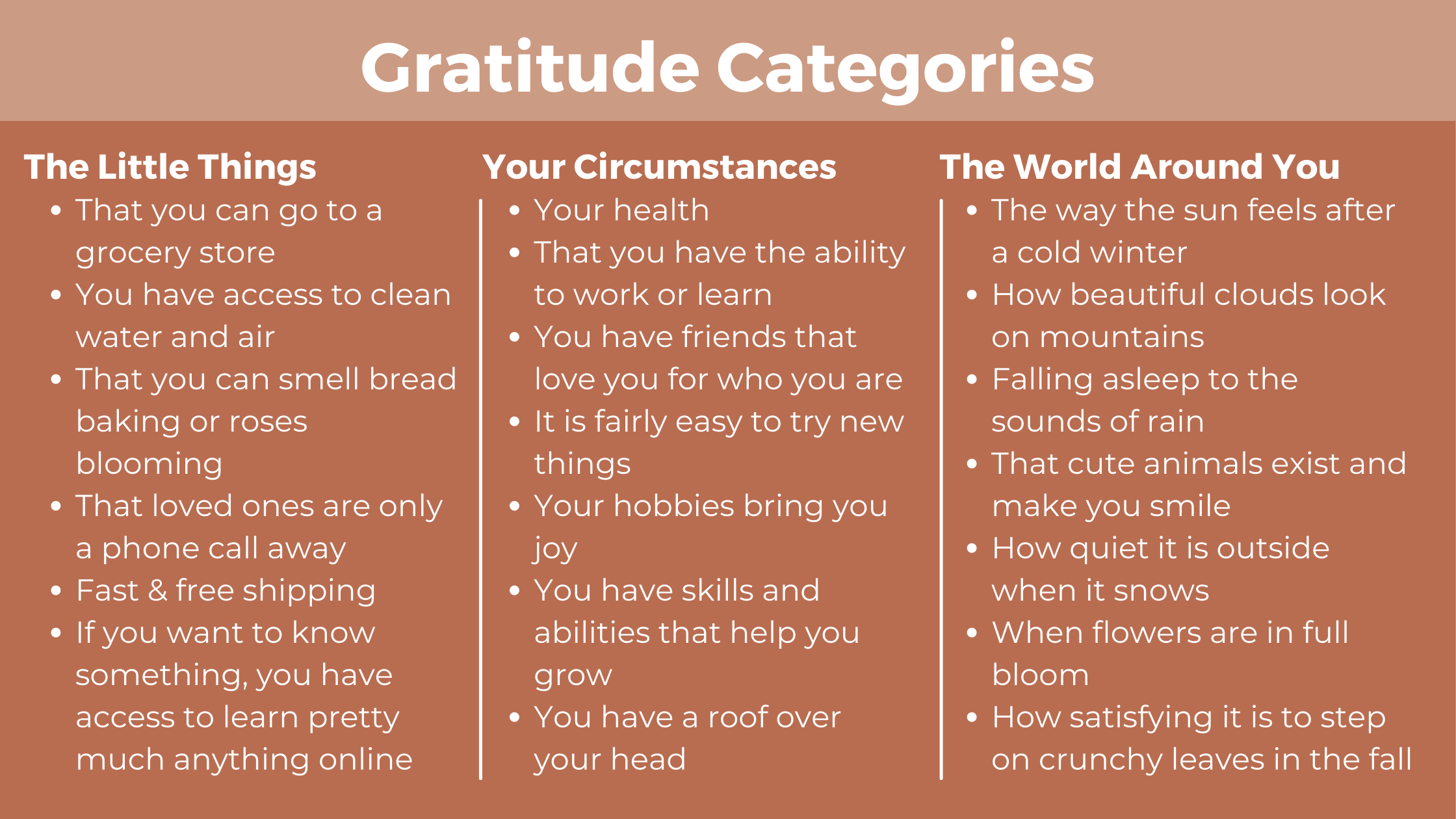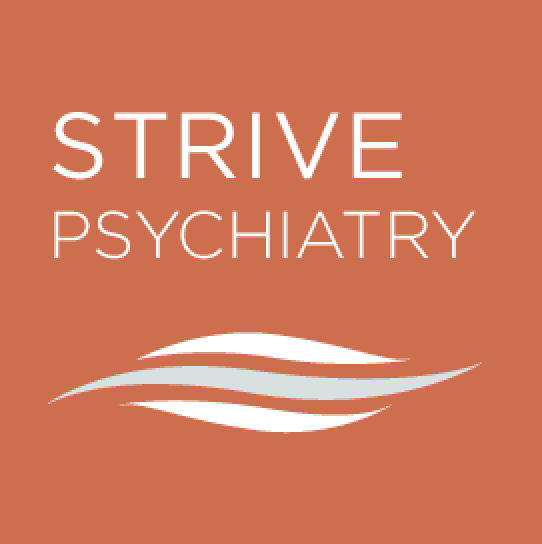November is National Gratitude Month, and, with Thanksgiving right around the corner, now is the perfect time to analyze the things we are thankful for. While it is a good practice to say “thank you” or show gratitude to others, there are more benefits to gratitude than simply “being a nice thing to do.” In this blog post, we will look into:
- The positive power of gratitude on our mental health
- Gratitude prompts to inspire thankfulness
- Practical ways to incorporate more gratitude into your life
Be sure to check out our helpful infographic at the bottom of the page!
Gratitude’s Impact
Across the board, people agree that gratitude is an important virtue. But how important is it exactly? Determined to find the answer to this question, researchers, experts, and psychiatric professionals have conducted a series of tests to find the effects of gratitude in the brain, in relationships, and in the workplace.
On Your Brain
Those who chose to be intentionally grateful see many positive mental health benefits. A study conducted by Seligman and Steen determined that those who actively focused on being thankful saw an increase in happiness and a decrease in depressive symptoms. This was not a temporary change either – the benefits of this study persisted for six months. The group in this study only had to focus on gratitude for 2 weeks to see this staggering result. While thankfulness isn’t a one-stop solution and does not replace a visit to a mental health professional, it is a great way to change perspectives and improve your mental state.
How to practice this
One helpful thing about the study mentioned above is that it can be practiced at home. To tap into the powerful effect gratitude has on your mind, complete the “3 Good Things” exercise. Here is what you do:
- Set some time aside at the end of every day and write down 3 good things that happened during the day.
- Go into as much detail as you can remember – what exactly happened? Who was there? How did it make you feel at the time? How does it make you feel now?
- Focus your full attention on each task. Try to minimize distractions.
- Commit to doing this for at least 1 week
- Pay attention to your mental state after you complete each day and week.
This could look like:

Many people journal the things they are grateful for as a self-care practice. Incorporating this into your daily routine can do wonders for your mental health.
In Your Relationships
It is clear that choosing to be thankful is good for you, but it is also good for your relationships. In fact, thankfulness in personal relationships is linked to increased communication, positive feelings, healthy conflict resolution, and cooperation between individuals. Taking this a step further, romantic partners who felt appreciation toward each other were less likely to break up than those who did not actively feel appreciated. Gratitude goes a long way when building and maintaining relationships.
How to practice this
One great method to experience the power of thankfulness within your relationships is to write a thank-you note. You read that right. This simple act helps you articulate what about a specific person you are grateful for, and it helps that person feel loved and appreciated. If you want to gain even further benefits from this method, feel free to deliver your letter personally and read it aloud. If that seems like an uncomfortable idea to you, it is important to pay attention to that feeling. You don’t even have to show the letter to anyone to experience an uptick in your mental state. Simple gestures – like a note in a lunchbox or a quick phone call – can also go a long way when practicing gratitude.

In Your Workplace
Gratitude is instrumental in an efficient workplace. Not only is extending thanks a nice thing to do, but it is also in a manager’s best interest to actively and intentionally thank employees. This is because businesses whose management actively thank their employees see greater productivity. A study looking into the power of gratitude in the workplace found that fundraising employees who received a thankful pep-talk before their workday made 50% more fundraising calls than the employees who did not receive the pep-talk. One thing to keep in mind is that expressing appreciation should be both be active and intentional. While it is one thing to say “Thanks for all the hard work!” It is better to say, “You really crushed that presentation. Thank you for being so precise!”

How to practice this
Set a goal for yourself to express your appreciation for each employee at least once a week, especially if there is a presentation, deadline, or milestone taking up their time. Put this goal somewhere you can see it and be sure to commit to it. If you are not a manager, you can still choose to be intentionally grateful to your coworkers. Try to actively thank a teammate when they help you out, cover shifts, or are simply good listeners. You might be surprised at these acts of gratitude toward others helps change your perspective as well.
What can I be grateful for?
Sometimes it is easy to take for granted all the things we have to be grateful for. If you are wanting to practice intentional gratitude, here are a few ideas to get you started:

Did anyone of these stand out to you? Spend some time thinking about or journaling what you are thankful for.
If there is something you are grateful for that isn’t on the list, let us know in the comments!
Grateful. Thankful. Blessed.
During this month of gratitude, we encourage you to get intentional with your thankfulness. Don’t let this season end and not take advantage of the incredible mental health benefits of being grateful. Try one of the ideas in this blog post and notice how it helps you grow. Remember to tap into the power of thankfulness both today and all throughout the year.

